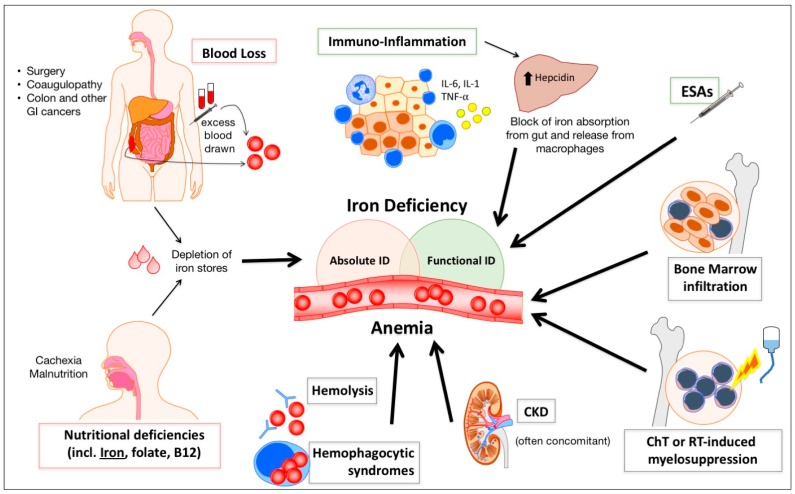Figure 1.
Schematic illustration of the main mechanisms contributing to anemia and iron deficiency in cancer patients. Blood losses due to tumor growth (especially in gastrointestinal cancers) or after surgery, possibly favored by concomitant coagulopathy, and inadequate iron intake due to cachexia and malnutrition lead to absolute iron deficiency (ID). Inflammation increases hepcidin synthesis in the liver, leading to functional ID. Treatment with erythropoiesis stimulating agents may contribute to functional ID, determining a discrepancy between iron need for erythropoiesis and iron supply from the stores. Other factors, such as bone marrow infiltration by tumor cells, myelosuppression caused by chemo- or radio-therapy, and concomitant chronic kidney disease (CKD), often contribute to the development of anemia in cancer patients.

